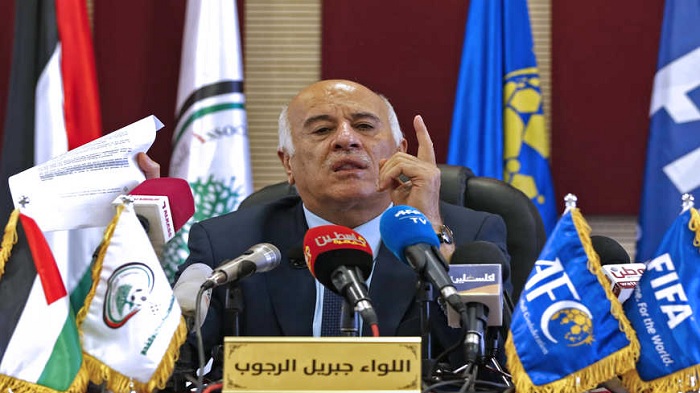
As the possibility of Palestinian elections becomes more real, new and unexpected conflicts are propping up. In addition to the expected hurdles that Israel might put up, as well as the need for Fatah and Hamas to find common ground, an unexpected problem has arisen.
Disagreement over the leadership of the Jerusalem branch of Fatah blew up in late September as the central leadership appears to have tried to railroad a list of local leaders totally loyal to President Mahmoud Abbas, a Fatah source told Al-Monitor on condition of anonymity. The source insisted that the reason for intervention was the desire of the Fatah leadership — especially Abbas — not to give supporters of the renegade Fatah leader Mohammed Dahlan any foothold in Palestine, and especially in the proposed Palestinian capital of Jerusalem.
Jamal Muheisen, member of the Fatah Central Committee in charge of membership and mobilization, announced on his Facebook page Sept. 30 the confirmation of the Fatah committee that he said was selected by consensus. He said that 22 individuals nominated themselves Sept. 16 and when seven of them withdrew the next day, the remaining 15 won unopposed by acclamation. A few days later, on Oct. 4, Muheisen met with the newly selected committee and witnessed the consensus on Shady Mutawar as secretary for the Jerusalem branch.
The confirmation of the new committee on Sept. 30 and the choosing of the local secretary triggered an angry response by many Fatah cadres who felt that their voice was dismissed and that Ramallah gave priority to loyalty over all other issues.
Dimitri Diliani, a former member of the Fatah Revolutionary Council, told Al-Monitor that the disagreement about how the election process took place is entirely an organizational issue. “The problem is between those who abide by the internal bylaws of Fatah and those who insist on the need to organize the conference that would select an elected council, versus those who abide by the decision of the president [Abbas] to bypass the bylaws of the Fatah movement.”
Diliani, who recently declared himself spokesman for the Democratic Reform Current, a reformist wing of Fatah led by Dahlan, said the problems in the Jerusalem branch of Fatah have to do with Dahlan. “The selection was done to ensure absolute loyalty because they were afraid that true elections were not guaranteed to provide them with that loyalty to the president. The leader — Mohammed Dahlan — had nothing to do with what happened.”
Diliani said that the problems occurred in Jerusalem because it is the only place that the arms of the Palestinian security forces can’t reach the activists as they can in the rest of the West Bank. Diliani was referring to the fact that Israel prevents the Ramallah-based leadership or its security agents from publicly working in Jerusalem. In some West Bank locations, activists have been arrested for their opinions, activists insist.
The way that the Jerusalem committee was selected produced angry reactions by Fatah cadres who felt that the process was railroaded to ensure the results that were produced. Protests took place in different locations and in different forums. A letter was submitted to the Fatah Central Committee Oct. 2, and an anti-settler activity took place.
Hatem Abdul Qaderm, a former member of the Palestinian Legislative Council and a senior Fatah leader in Jerusalem, suggested compromise solutions including suspending the newly elected council or adding 10 members to it, but neither suggestion worked.
Not finding any acceptable solution, the protesting Fatah cadres decided on a series of actions to express their opposition. They took place outside the offices of the Fatah Mobilization and Organization office demanding that a full-fledged conference take place according to the movement’s bylaws. The protest activities culminated in an open hunger strike in Ramallah Oct. 24. The protests didn’t last long as Fatah Central Committee Secretary Jibril Rajoub visited the protest tent and assured the Jerusalemites that their problem will be solved within 96 hours. According to the spokesman of the protesters, Yasin Rayan, they agreed to bring down the protest tent and end the protests based on the promises of Rajoub.
It is not clear whether the intervention of a senior leader like Rajoub will in fact produce the desired reversal and will allow for a full-fledged conference for Fatah cadres to meet and select by secret vote the leadership of Fatah in Jerusalem.
The importance of this process, however, is not limited to Jerusalem; many are looking at this argument to see if they can make similar demands in the way local cadre leaders are selected. A more democratic primary process of sorts will go a long way in ensuring that the actual general elections will be democratic and genuinely representative of what Palestinians aspire to in the next generation of leaders.
 Eurasia Press & News
Eurasia Press & News



